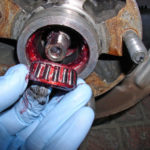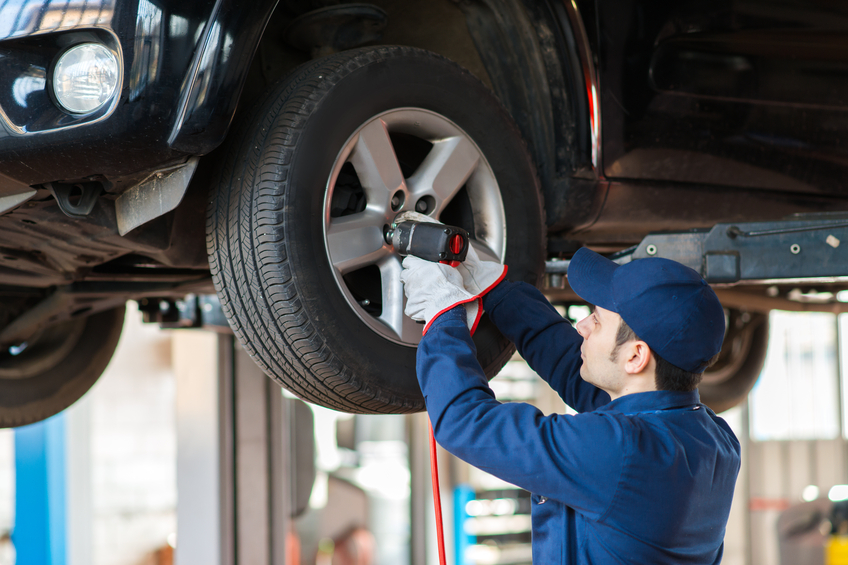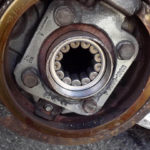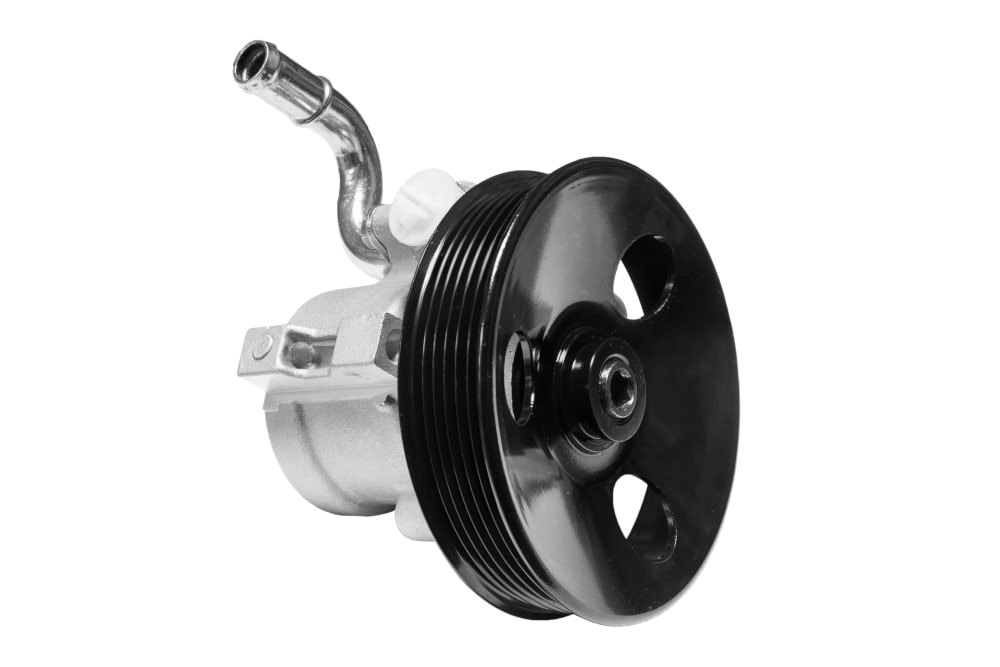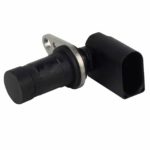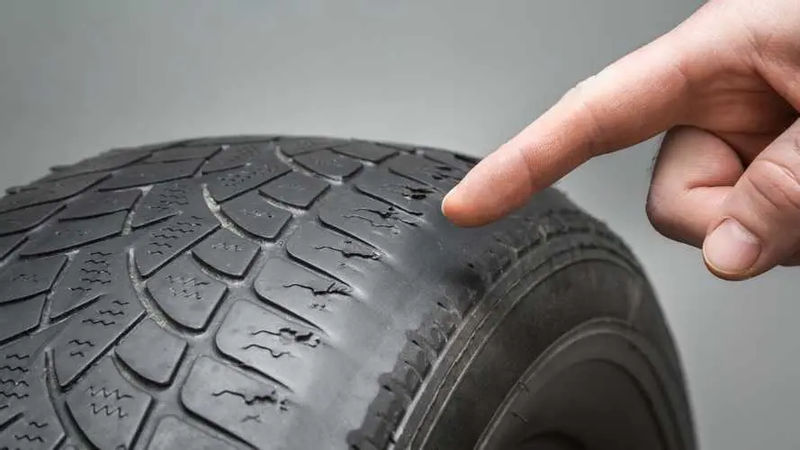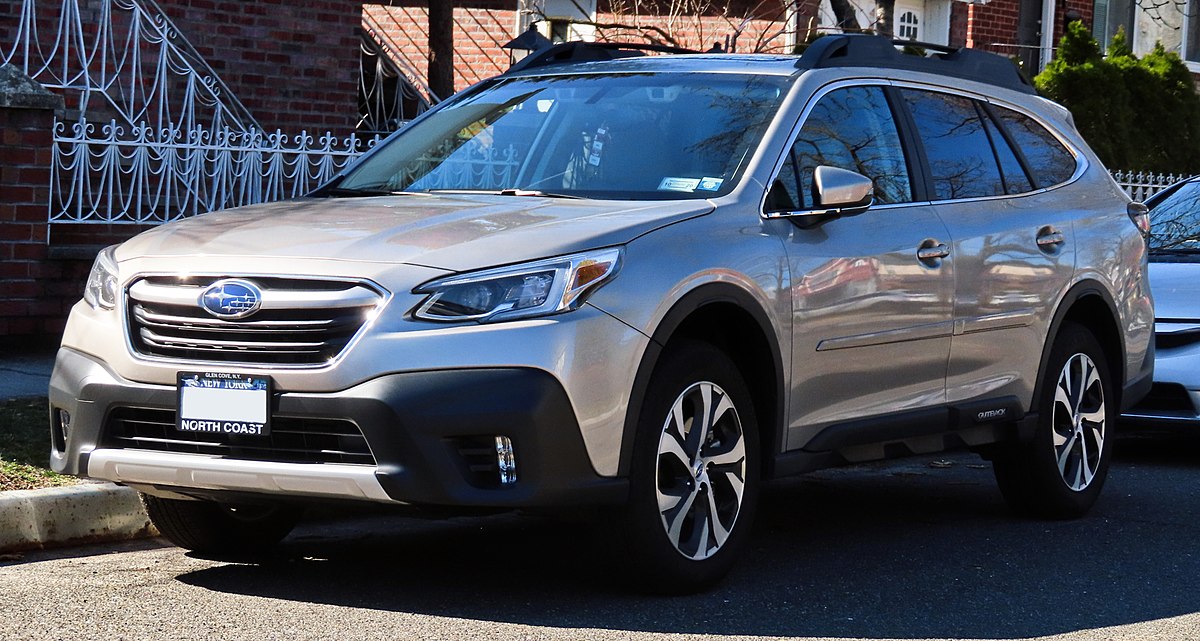We are going to consider some of the causes of a a bad wheel bearing noise and what can be done to fix it. A problem with your wheel bearings can affect the smoothness of your ride and the life of your tires, but it can also pose serious safety risks. As a result, having wheel bearings tested at the earliest sign of difficulty is critical.
Shafts and axles are guided and supported by wheel bearings. They guide the wheels and absorb axial and radial forces as they are part of the chassis. The longitudinal forces produced by rotation are known as radial forces. They are applied at a straight angle to the longitudinal axis to the wheel bearing.
Wheel bearings are designed to reduce the amount of friction created by wheel rotation. As a result, they make a significant contribution to fuel economy and CO2 reduction. These are significant goals for the automotive industry now and in the future. While the lubricant chosen is critical, the integration of other components linked with the wheel bearing also plays a significant role in modern bearing units. Integration of ABS sensors, for example, and modern connections to the axle shaft help to minimize axle weight, which helps with fuel economy.
Take this often-overlooked auto component seriously. Keep an eye out for these warning indicators. Take the car in to get the wheel bearings tested by a professional at the first hint of trouble. We are going to consider bad wheel bearing noise, how it sounds like, causes and how to fix it.
Signs Of a Bad Wheel Bearing
Your vehicle’s wheel bearings are critical to its operation. A wheel bearing, more specifically, is required for the hub, tire, and wheel components to function properly. The wheel bearing allows the hub assembly to move and rotate without friction, resulting in smooth tire and wheel rotation. When a wheel bearing fails, you will experience a number of symptoms:
Bad Wheel Bearing Noise
Noise arising from the wheel or tire area of a moving vehicle is the most prevalent and easily identifiable symptom linked with a damaged wheel bearing. You might mistake this for engine noise, but if you listen carefully, you’ll hear grinding or grating that gets louder as the vehicle speeds up. Because wheel bearings aren’t renowned for wearing down all that often, the noise is usually misattributed to something else and the issue is missed.
Vehicle Feels Loose
You might not understand what a “loose” automobile means if you hear professional drivers use the term. It usually relates to the vehicle’s steering system, which can include wheel bearings. Another common indication of a faulty wheel bearing is wheel looseness, often known as wheel play. As the bearings deteriorate, they become loose inside the wheel hub and spindle, causing your car to feel shaky while steering.
Uneven Tyre Wear
Because of the looseness of the wheel and the vibration that reverberates through it, your tires will wear unevenly, necessitating the purchase of new tires sooner.
Read also: 10 Causes Of Engine Overheating & Solutions
Causes Of Wheel Bearing Noise
Wheel bearings are always moving and there’s chances you’ll hear distinct noises coming from the bearings as they move. Some of the noises you’ll hear from your automobile bearing are typical, and you shouldn’t be concerned. Other noises coming from the car bearings, on the other hand, could indicate a significant problem that needs to be addressed. The most common causes of wheel bearing noises are listed below:
Improper Installation
When you have new bearings, hearing them make noise is unusual. However, when the wheel bearings are not properly installed, this is more likely to happen. If you hear noises from your bearings soon after they’ve been installed, it’s a sign that they’ve already been damaged. Poor installation or going against the manufacturer’s recommendations caused the damage.
Unbalanced tires and damaged shocks
Your car’s wheels make similar noises due to unbalanced tires and damaged shocks. The tire, wheel bearing, lower arm, knuckle arm, lower joint, and shocks all play a role in your car’s wheel system.
The car exerts more pressure on the lower side of your car when your tires are not balanced. As a result, the wheel bearings on that side are strained, resulting in more noise than expected. When the shocks are damaged or improperly set, the same thing happens.
Driving Through Deep Water
The design of a wheel bearing allows pressure to escape the wheel system. They also come with a lubricant made of petroleum. Unfortunately, the wheel bearing’s design does not prevent water from entering the wheel bearing. This implies that if you drive on wet roads or in water, your bearings will get wet. When moisture comes into contact with your lubricant, it renders it ineffective. As a result, the bearing is no longer subjected to excessive friction caused by the moving parts. When the bearing’s pressure and friction are too high, it begins to make noises. Unfortunately, wheel bearing damage like this cannot be remedied. All you have to do now is replace the bearing.
Driving On Bad Roads
The wheel bearing absorbs all of the weight of your car. When you drive over a pothole or an uneven curb, your wheel bearing is quickly damaged.
This is because the impact is felt by the wheel bearings when you strike anything. The wheel bearings will begin to show signs of wear and tear. The damage worsens over time, and your bearing begins to make more noises.
Accident Around The Wheel Area
The bearings are linked to the wheel system and the other components we discussed earlier. The proper operation of the wheel bearing is contingent on the proper operation of all of these other components.
If the tire, shocks, rims, or any other part of the vehicle is damaged in an accident, the bearing is also damaged. Sometimes you’ll need to consult an expert, who can tell you which parts need to be replaced. Visit Carfictions.com, where they provide straightforward solutions to car problems. You’ll hear noises coming from your wheel if the bearings are damaged.
How Much Does It Cost To Fix Wheel Bearing Noise?
A wheel bearing replacement costs around $400 on average. However, the cost will vary greatly depending on your car’s model and the type of rim you need to replace. After you’ve purchased the bearing, you’ll need another $150-$200 for labor. The mechanic you choose to replace your wheel bearing will determine the labor cost. When you hear noises coming from a bad wheel bearing, you should replace it right away. It’s risky and dangerous to continue driving once you realize your bearing is bad.
The cost of changing a wheel bearing is determined by the cost of spare parts for your vehicle and various installation fees charged by your mechanic.
How To Evaluate Wheel Bearing Damage
Once you’ve identified the indications and symptoms of a damaged automobile bearing, you’ll need to figure out if the problem is with the wheel bearings. To inspect and determine the extent of damage to your bearing, follow the procedures below:
Use a jack to lift the car
Check your owner’s manual to see where the jack should go on your vehicle. Lift the wheel of your car off the ground by jacking it up. Take the appropriate steps to prevent the car from falling and injuring you.
Wiggle the Wheel to Check Any Movement
Back and forth, pull and push the wheel. If you can easily move the wheel, you have a major wheel bearing problem. Replace the bearings as soon as possible.
Spin The Wheel
Spin the wheel as quickly as you can. You’ll probably hear rattling noises and see wobbling if the wheel bearing is destroyed. These signs need to be replaced right away.
Visit a Professional Mechanic
It can be difficult to recognize all of these symptoms at times. This is especially true if you have no prior experience with car repairs or are not a DIY enthusiast.
In this scenario, we advise you to take your vehicle to a specialist anytime you suspect a problem. Hire a qualified mechanic to complete the work for you.
Frequently Asked Questions
What does a wheel bearing sound like when it’s going out?
Cyclic chirping, squealing, and/or growling noises are common symptoms of a damaged wheel bearing. If the sound fluctuates in proportion to vehicle speed, you can be sure it’s related to wheel bearings. Every turn can make the sound worse, or it can go away for a brief while.
Is it safe to drive with a wheel bearing noise?
When a wheel bearing becomes worn, it begins to produce a noise. Driving with a worn wheel bearing is not a good idea because it is an important aspect of holding the wheel onto your car. Another indicator of a worn wheel bearing is a rumbling or humming sound.
How long can you drive on a humming wheel bearing?
Is it possible for a car to continue to drive after hearing wheel bearing noises? You can only go around 1000-1500 miles before it gives up and fails, which means you and others are in danger till then. As soon as possible, you should visit a mechanic.
Do wheel bearings grind?
You may have a worn wheel bearing if you hear your vehicle grinding while driving. The grinding indicates mechanical damage, which should be investigated as soon as possible. Because the wheel bearing is not adequately greased, friction builds up on the bearing, causing the wheel to abruptly stop.
What’s the main cause of damage wheel bearings?
The following are the most common causes of wheel bearing failure: Contact damage or poor road conditions – any impact, such as hitting a pothole, speed bumps, or the curbstone, can damage a wheel bearing and shorten its lifespan.
Conclusion
This is how far we can go on this article about wheel bearing noise. Hope you have enjoyed reading it. If you notice your wheel bearing is damaged, we advise that you take it to a mechanic who will help fix the issue.

